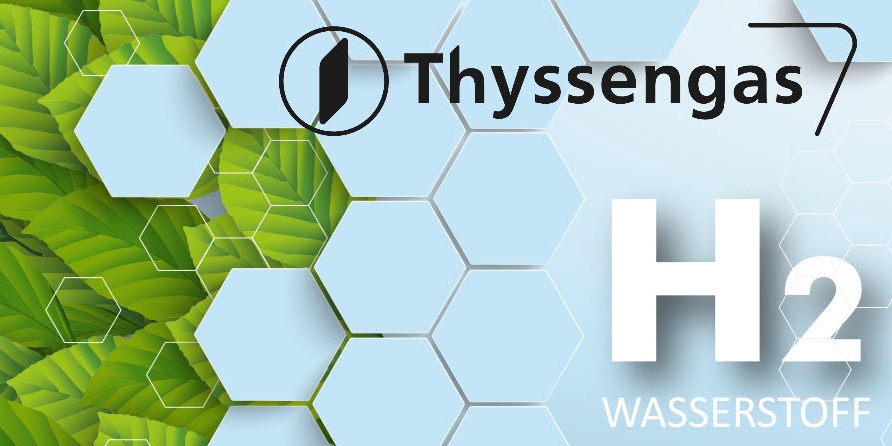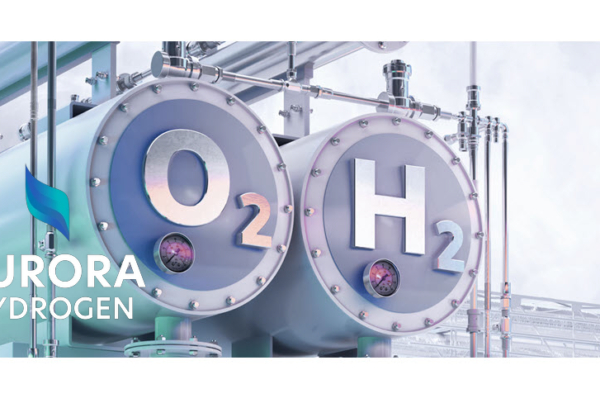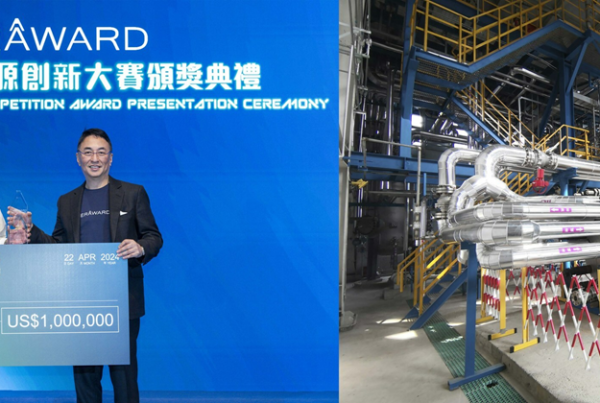
The Dortmund-based transmission system operator Thyssengas is proactively preparing for the transport of hydrogen and other green gases.
In a first step, the company is creating 25 additional jobs that will drive forward the development of a “Thyssengas H2 launch network” from the previous natural gas grid. In doing so, Thyssengas is underlining its own claim to be a pioneer and designer of the energy transition.
800-kilometre hydrogen launch network planned
The “Thyssengas H2 launch network” with a length of around 800 line kilometres is to form the starting point for the gradual transition to hydrogen transport. It comprises the pipeline sections in the Thyssengas network, which are to be made H2-ready in a first step and then gradually converted to hydrogen.
“With this investment in personnel and know-how, we as a transmission system operator are making advance payments. So far, we have no legal mandate for the construction of a hydrogen network, although there is demand and potential. However, I am convinced that without our initiative, a rapid hydrogen ramp-up will not succeed,” explains Dr. Thomas Gößmann, CEO of Thyssengas GmbH. He sees the establishment of an H2 network based on existing natural gas pipelines as a necessary lever and an important signal to producers, importers and consumers in the Thyssengas grid area. “All market participants need predictability as to when a high-performance hydrogen network will be available in order to be able to satisfy their respective needs. We are now giving the go-ahead for our network,” Gößmann continues.
The hydrogen grid planning is based on around 45 declarations of intent (MoUs) that Thyssengas has concluded with potential hydrogen producers and customers as part of a market survey conducted by FNB Gas e.V. Over the 800 kilometres of pipeline identified, these future customers are to be reliably supplied with hydrogen from 2030 at the latest. These are lines, the majority of which are to be successively rededicated for H2 transport or rebuilt in parts. By 2045, more and more line kilometres are to be added and the hydrogen grid in the Thyssengas network is to be expanded in parallel with the growing market. This makes the Thyssengas pipelines an essential part of the Germany-wide hydrogen network for the year 2032, which was published as a hydrogen variant by the transmission system operators on 6 July 2022 as part of the interim status of the Gas Network Development Plan 2022-2032.
“We at Thyssengas are now taking this step to show that we are serious and are making courageous business decisions. We do this because hydrogen is the key element for the challenges of energy supply. We and many other players along the H2 value chain are in the starting blocks. Our appeal to politicians is: Let this initial spark by companies be followed by pragmatic regulation. As soon as planning and investment security exists, the market for hydrogen will pick up speed. We now have the opportunity to unleash this potential,” explains Dr. Thomas Gößmann.
Additional staff for new tasks
Numerous planning and technical measures are associated with the gradual changeover to hydrogen. Against this backdrop, Thyssengas is now creating 25 new jobs, mainly in the company’s technical areas. The focus is on looking for engineers to accompany the rededication of existing lines as well as supplementary pipeline construction projects for the hydrogen grid. But the company is also looking for reinforcement in the areas of sales, human resources, finance and communication. The positions are aimed at both young professionals and experienced specialists.
“We now have to bring in additional employees as future shapers if we want to push ahead with the H2 ramp-up at speed. In this way, we are further expanding our know-how and preparing for future new tasks,” explains Jörg Kamphaus, Commercial Director and responsible for Human Resources. “We have a professional challenge to offer that could hardly be more meaningful: to help shape the transformation of the energy industry into a climate-neutral future together with a committed team,” Kamphaus continues. A recruiting campaign is intended to accompany the personnel development in the coming months communicatively and provide the necessary attention.
Hydrogen as an energy carrier of the future
Thyssengas operates a 4,400-kilometer-long pipeline network, which still mainly transports natural gas today. But not only with a view to the decarbonization of the energy industry, natural gas as a fossil fuel has no future for the foreseeable future. In view of the dependence on Russian natural gas supplies, the bridge technology of natural gas is to be significantly shortened – in addition to the already decided nuclear energy and coal phase-out. The gaseous energy carrier hydrogen can make a significant contribution to the security of supply in Germany and accelerate the energy transition towards climate neutrality. For this, however, hydrogen and other green gases must be available in significant quantities as soon as possible.
Since 2018, Thyssengas has been involved in the pioneering hydrogen project ELEMENT EINS as well as in the forward-looking H2 initiatives GET H2, GET H2 Nucleus IPCEI, H2morrow steel, IN2Climate and EcoPort 813 – H2UB DeltaPort. With the first Thyssengas Dialogue at the beginning of May 2022, the company has also initiated its own platform for networking and exchange along the H2 value chain.
About Thyssengas
Thyssengas GmbH is a German transmission system operator. The headquarters of the company, which celebrated its 100th anniversary in 2021, is Dortmund. Thyssengas operates a gas network of around 4,400 kilometers – mostly in North Rhine-Westphalia, but also in Lower Saxony. It supplies downstream distribution system operators as well as industrial companies and power plants. For the climate-neutral future, Thyssengas relies on the gaseous energy carrier hydrogen. The Dortmund-based network operator is involved in numerous initiatives to this end. At the same time, it is making targeted investments in the conversion of its pipeline system in order to make a rapid hydrogen ramp-up possible as part of the energy transition. The company currently employs around 400 people at seven locations in the network area, and the trend is rising.
Read the most up to date Fuel Cell and Hydrogen Industry news at FuelCellsWorks




